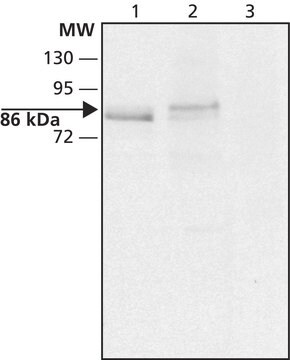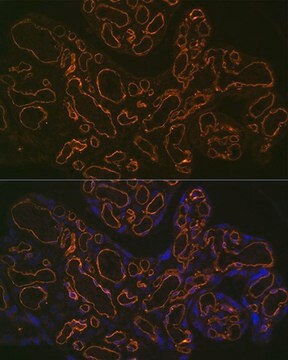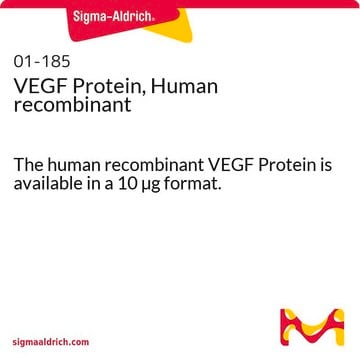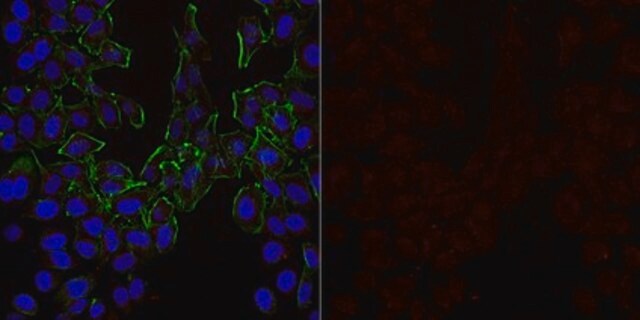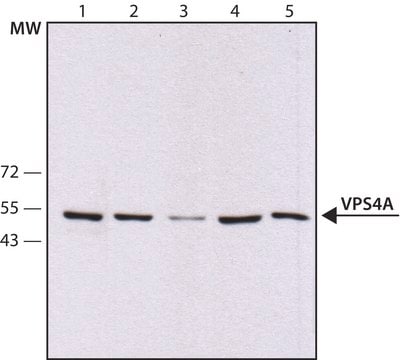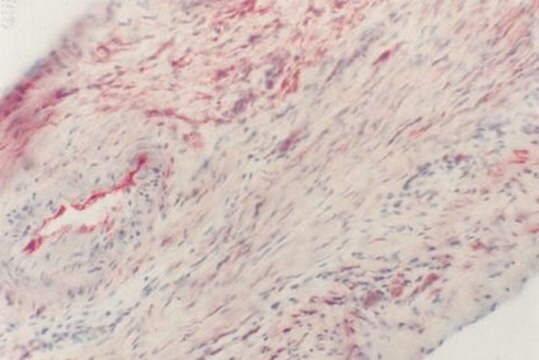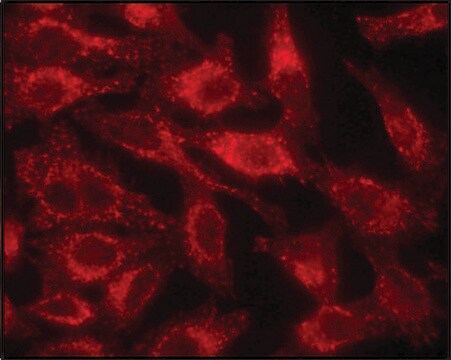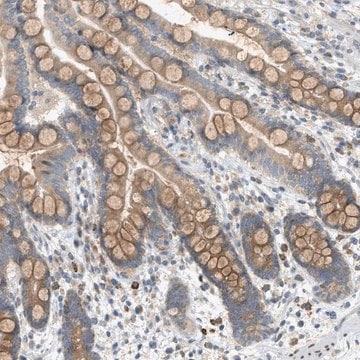おすすめの製品
由来生物
mouse
品質水準
結合体
unconjugated
抗体製品の状態
purified immunoglobulin
抗体製品タイプ
primary antibodies
クローン
7D10, monoclonal
形状
buffered aqueous solution
化学種の反応性
mouse
テクニック
indirect ELISA: suitable
western blot: 1-5 μg/mL
アイソタイプ
IgG2bκ
GenBankアクセッション番号
UniProtアクセッション番号
輸送温度
dry ice
保管温度
−20°C
ターゲットの翻訳後修飾
unmodified
遺伝子情報
human ... DYRK1A(1859)
詳細
This gene encodes a member of the Dual-specificity tyrosine phosphorylation-regulated kinase (DYRK) family. This member contains a nuclear targeting signal sequence, a protein kinase domain, a leucine zipper motif, and a highly conservative 13-consecutive-histidine repeat. It catalyzes its autophosphorylation on serine/threonine and tyrosine residues. It may play a significant role in a signaling pathway regulating cell proliferation and may be involved in brain development. This gene is a homolog of Drosophila mnb (minibrain) gene and rat Dyrk gene. It is localized in the Down syndrome critical region of chromosome 21, and is considered to be a strong candidate gene for learning defects associated with Down syndrome. Alternative splicing of this gene generates several transcript variants differing from each other either in the 5′ UTR or in the 3′ coding region. These variants encode at least five different isoforms. (provided by RefSeq)
免疫原
DYRK1A (NP_001387, 674 a.a. ~ 763 a.a) partial recombinant protein with GST tag. MW of the GST tag alone is 26 KDa.
Sequence
NQGNQAYQNRPVAANTLDFGQNGAMDVNLTVYSNPRQETGIAGHPTYQFSANTGPAHYMTEGHLTMRQGADREESPMTGVCVQQSPVASS
Sequence
NQGNQAYQNRPVAANTLDFGQNGAMDVNLTVYSNPRQETGIAGHPTYQFSANTGPAHYMTEGHLTMRQGADREESPMTGVCVQQSPVASS
物理的形状
Solution in phosphate buffered saline, pH 7.4
法的情報
GenBank is a registered trademark of United States Department of Health and Human Services
免責事項
Unless otherwise stated in our catalog or other company documentation accompanying the product(s), our products are intended for research use only and are not to be used for any other purpose, which includes but is not limited to, unauthorized commercial uses, in vitro diagnostic uses, ex vivo or in vivo therapeutic uses or any type of consumption or application to humans or animals.
適切な製品が見つかりませんか。
製品選択ツール.をお試しください
保管分類コード
10 - Combustible liquids
引火点(°F)
Not applicable
引火点(℃)
Not applicable
個人用保護具 (PPE)
Eyeshields, Gloves, multi-purpose combination respirator cartridge (US)
適用法令
試験研究用途を考慮した関連法令を主に挙げております。化学物質以外については、一部の情報のみ提供しています。 製品を安全かつ合法的に使用することは、使用者の義務です。最新情報により修正される場合があります。WEBの反映には時間を要することがあるため、適宜SDSをご参照ください。
Jan Code
WH0001859M1-100UG:
試験成績書(COA)
製品のロット番号・バッチ番号を入力して、試験成績書(COA) を検索できます。ロット番号・バッチ番号は、製品ラベルに「Lot」または「Batch」に続いて記載されています。
Suk Min Jang et al.
EMBO reports, 15(6), 686-694 (2014-05-14)
Heterochromatin protein 1 (HP1) proteins are chromatin-bound transcriptional regulators. While their chromodomain binds histone H3 methylated on lysine 9, their chromoshadow domain associates with the H3 histone fold in a region involved in chromatin remodeling. Here, we show that phosphorylation
DYRK1A-mediated PLK2 phosphorylation regulates the proliferation and invasion of glioblastoma cells.
Shichuan Tan et al.
International journal of oncology, 63(2) (2023-06-30)
Polo-like kinases (PLKs) are a family of serine-threonine kinases that exert regulatory effects on diverse cellular processes. Dysregulation of PLKs has been implicated in multiple cancers, including glioblastoma (GBM). Notably, PLK2 expression in GBM tumor tissue is lower than that
Qiang Liu et al.
The Journal of biological chemistry, 291(51), 26399-26409 (2016-11-04)
DYRK1A, located on the Down syndrome (DS) critical region of chromosome 21, was found to be overexpressed in brains of DS and Alzheimer's disease individuals. DYRK1A was considered to play important roles in the pathogenesis of DS and Alzheimer's disease;
Shijiao Tian et al.
The Journal of biological chemistry, 294(52), 20164-20176 (2019-11-15)
Insulin resistance in the brain is a pathological mechanism that is shared between Alzheimer's disease (AD) and type 2 diabetes mellitus (T2DM). Although aberrant expression and phosphorylation of insulin receptor substrate 1 (IRS-1) contribute to insulin resistance, the underlying mechanism
ライフサイエンス、有機合成、材料科学、クロマトグラフィー、分析など、あらゆる分野の研究に経験のあるメンバーがおります。.
製品に関するお問い合わせはこちら(テクニカルサービス)